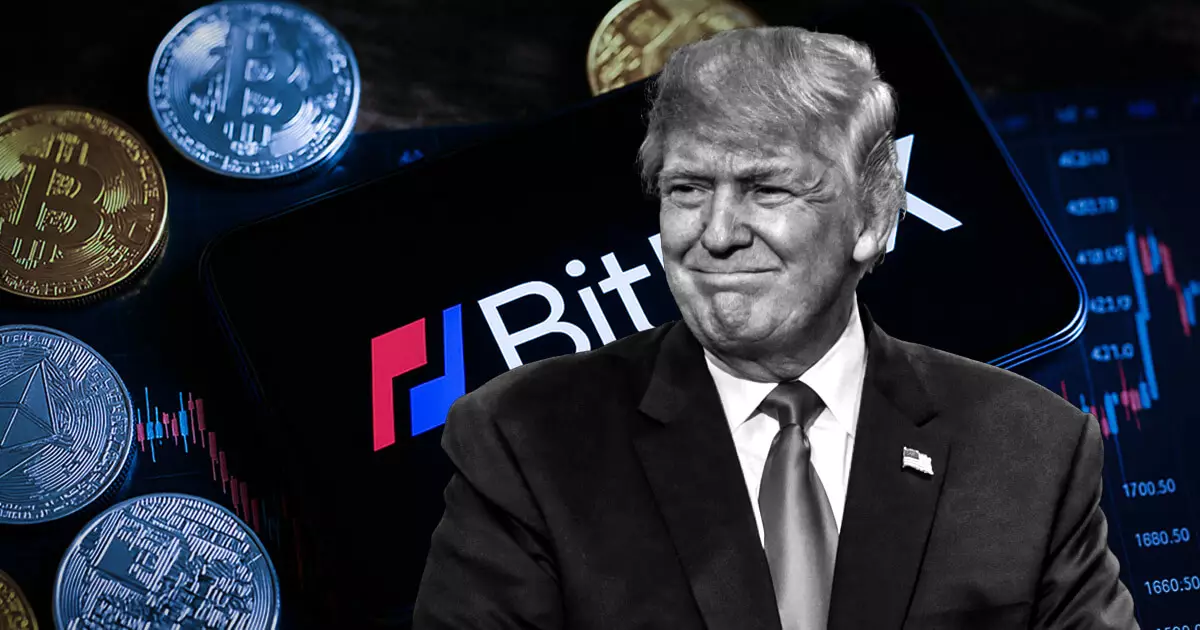In an astonishing move that sends ripples through the financial world, former President Donald Trump granted full pardons to the co-founders of BitMEX on March 27. Arthur Hayes, Benjamin Delo, and Samuel Reed, who had faced serious charges for violations of anti-money laundering laws, have found a new lease on life following this controversial decision. While the BitMEX trio previously admitted guilt to charges under the Bank Secrecy Act, they now frame their pardons as a reclamation of their reputations, signaling a broader fight against outdated regulatory frameworks that hinder innovation.
The significance of this act cannot be overstated. These founders were once labeled as orchestrators of a platform dubbed a “hub for illicit financial activity,” but in their view, they are victims of a politicized enforcement effort. Delo’s articulation of feeling “wrongfully made to serve as an example” captures a pervasive sentiment among many in the cryptocurrency community—an idea that technological progress is often hindered by regulatory overreach, particularly when antiquated laws meet groundbreaking innovations.
A Clash of Ideologies
Central to the outrage surrounding the pardons is the clash between regulation and innovation. Supporters of Trump’s decision argue that it represents a much-needed push against an overstretched regulatory environment that poses a threat to technological advancement. On the other hand, critics assert that these pardons set a dangerous precedent, essentially rewarding individuals who skirt the boundary of legality while enabling a culture of impunity in the burgeoning cryptocurrency market.
This dichotomy reflects a broader ideological struggle at the heart of American economics—whether to prioritize innovation and entrepreneurship or to strictly enforce regulatory guidelines meant to protect consumers and ensure market integrity. In a world where financial technologies are evolving rapidly, it is essential to strike a balance that encourages growth without compromising ethical standards. Trump’s pardoning of the BitMEX founders could be seen as a rallying cry for crypto advocates who believe that the rules governing finance must adapt swiftly to keep pace with the evolving landscape.
Impacts on the Regulatory Landscape
The pardons are not merely symbolic; they signal a potential shift in the regulatory paradigm governing cryptocurrency exchanges. As the BitMEX case has shown, federal authorities are now more willing to impose serious penalties on crypto operators for failing to comply with existing laws. Yet, with the granting of pardons, there may be hesitance among regulators, as they could become wary of enforcing laws aggressively against operators who advocate for a reformation of these rules.
This creates a dual-edged sword: while some entrepreneurs may feel empowered to innovate without the looming threat of federal prosecution, such a climate could unintentionally encourage complacency regarding compliance. Bitcoin and its peers thrive on the idea of decentralization and self-regulation, but the challenge remains to establish a pathway whereby responsible innovation can flourish alongside the necessary regulatory checks and balances.
The Future of Crypto Under Scrutiny
Moreover, Delo’s remarks on the perceived obsolescence of existing regulations underscore a critical reality: the legal framework surrounding cryptocurrency is struggling to keep pace with the rapidly evolving technology. As BitMEX’s co-founders seek to reposition themselves as victims of an antiquated justice system, others in the industry are left contemplating the implications for the future of crypto.
To that end, one must question whether the current system will adapt sufficiently to foster a healthy digital marketplace or whether it will continue to stifle innovation through stringent enforcement. Trump’s pardons may represent just the beginning of a larger conversation around the balance of power between regulators and innovators. In navigating this complex terrain, industry players must rally for clarity and consistency in regulations that promote growth rather than punitive measures that deter responsible entrepreneurship.
Ultimately, the pardons granted to Hayes, Delo, and Reed serve as a clarion call for reflection and action within an industry at a pivotal juncture. As we look ahead, we must critically assess not solely the legal implications of this decision but also the cultural implications within the wider society that is growing increasingly reliant on digital assets. The moral of the story? In the fight for innovation, regulatory frameworks must evolve, or risk stifling the very advancements they purport to protect.

